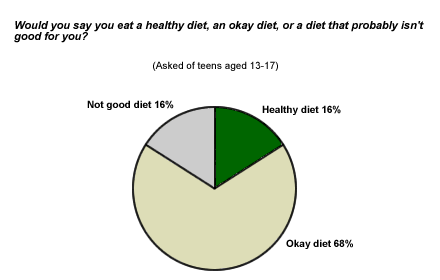
The majority of diabetics should eat plenty of meat, seafood, eggs, and eggs. But they should also avoid sugar or fat. People who are concerned about the health effects of their diet should eat a diet rich in fruits, vegetables, whole grains, and legumes. Diabetics should still have the option to eat and drink non-vegetarian items from time to time. These suggestions can help them make a healthy and balanced diet that suits their lifestyle.
Salt and flour are two common foods that can cause complications for diabetics. These ingredients can increase blood pressure and add unnecessary calories. You should avoid high sodium foods, but there are still ways to include it in your meal plan. A diabetes diet menu should be composed of mostly whole foods, which are lower in sodium and fat than those containing refined sugar. The key is to avoid processed foods and flash frozen foods as much as possible.

The ideal diabetic diet menu should have a balanced mixture of carbohydrates, proteins, fat, and fiber. It's important to incorporate healthy fats and carbohydrates in your diet. The right balance should be achieved for a diabetic diet. While fiber and protein slow down the digestion of carbohydrates and provide nutrition, protein will increase your blood sugar levels. Diabetes is a condition that requires you to be vigilant about your food intake and maintain a steady blood glucose level.
The diabetic diet menu should reflect your child's current diet. This diet should be centered on carbohydrates, which can cause blood sugar spikes. Instead of breads, pasta, a diabetic diet should emphasize fruit and vegetables. Both fruits as well as vegetables are rich sources of fibre and antioxidants. Whole fruits are better than fruit juices. Avoid eating fruits after meals. They can spike blood sugar.
The soluble fiber found in cooked oatmeal can help regulate blood sugar and promote heart health. Oatmeal is an excellent source of fiber. This is especially important for diabetics as it can lower insulin intake. It is low in calories but high in fiber so it is a good choice for diabetics. But a diabetic diet menu should include some fruits, vegetables, and nuts to reduce the risk of developing type 2 diabetes.

Glycemic index is a key factor in diabetic diet plans. This index ranks carbohydrate-containing foods by their effect on blood sugar. A dietitian is able to help you find the right foods for your condition. You can also have a diet plan tailored to your lifestyle and goals. Healthy nutrition is key to maintaining a healthy lifestyle and keeping diabetes under control. It's important not to eat too much of anything.
FAQ
Do Men Need A Gym Membership?
A gym membership is not necessary for men. You will get more value for your money if you join the gym.
Many gyms offer free trial memberships that allow you to test the facilities before signing up for any monthly fees.
The gym is open to all, and you don't have to pay anything. Your membership can be cancelled at any time you choose to love it or not.
Do I need to exercise every day?
No! You should do at least 30 mins of moderate-intensity activity 5 days per week. This could be walking fast enough so you feel slightly out breath or cycling hard enough to sweat.
How many calories should I consume daily?
The exact amount varies depending on the person. An average person needs 2000-2500 calories per day. Based on your age, gender, height and activity level, you will need to calculate how many calories you require.
Is it true that overeating protein causes kidney stones?
Protein helps maintain healthy bone and tissue. Too much protein can cause calcium to be excreted through the urine. This can lead kidney stones.
It is important that you note that not all people develop kidney stones when they consume more than 2 grams of protein per kg (2.2 pounds). People can eat large amounts of protein and not get kidney stones.
Your sodium intake can prevent kidney stone formation. Sodium regulates the body's water balance. Too much sodium results in a higher risk of developing kidney stones.
If you have kidney stone, you might also consider reducing your protein intake. About half of adults' daily caloric intake is made up of protein. You'll lose weight if you reduce your intake of protein.
If you do decide to eat more protein, don't go overboard. Aim for less than 20% of total calories from protein.
Statistics
- Get free shipping and 25% off today. (healthline.com)
- Are You One of the 20% of Guys (mh.co.za)
- According to the American Academy of Dermatology (AAD), men over 50 are at a heightened risk of developing it. (healthline.com)
- Candidates and applicants must pass all four tests at 70% (minimum level) to graduate from Basic Deputy U.S. Marshal (BDUSM) Training. (usmarshals.gov)
- Cardmembers earn 5% Back at Amazon.com with a Prime Credit Card. (amazon.com)
External Links
How To
How to Eat Well for Men
Instead of eating three large meals a day, eat small meals. Smaller meals mean less time sitting on your stomach digesting food. You will be less likely later to overeat.
Avoid eating snacks before bedtime. If you snack late at night, you will wake up hungry and eat more the next day.
Instead, have a light snack an hour or two before sleep.
Avoid snack attacks where you grab something every time you feel hungry. This is especially dangerous for overweight people.
Be sure to balance your meals. Don't skip breakfast. Make sure to eat healthy lunches and dinners.
You can cut down on calories if you have trouble losing weight.
Reduce your intake of alcohol, nicotine, and caffeine. Both can alter the way your body processes nutrients.
Get enough sleep. Sleep deprivation makes people crave junk food.
Exercise regularly. Regular exercise can improve your mood and boost energy levels. It also burns more calories.
Take care to your mental health. Stress can lead to overeating and weight gain.
Learn how to relax. Meditation and yoga are great ways to relieve stress and anxiety.
Keep track of everything you eat. Note everything that you put in your mouth.
Supplements are important! Many men don't get enough vitamins and minerals to keep them healthy.
Take a multivitamin every day. Multivitamins can be used to prevent deficiencies in key vitamins, minerals and other nutrients.
You might consider taking a vitamin-C supplement. It keeps your immune system strong, and helps to prevent scurvy.
Include zinc in your diet. Impotence can result from zinc deficiency.
Drink water. Keep fluid intake at 1.5 liters, or about 4 cups daily.
Limit salt. Sodium raises blood pressure and leads to heart disease.
Avoid trans fat. Trans fat has been linked a higher rate of obesity, diabetes, and other heart diseases.
Best Male Enhancement Products for 2018 – Best Male Enhancement Tablets Reviews
There are many types of male enhancement products today. Some are effective, while others don't provide real results. This article aims to give you some information about the best male enhancement pills that actually work.